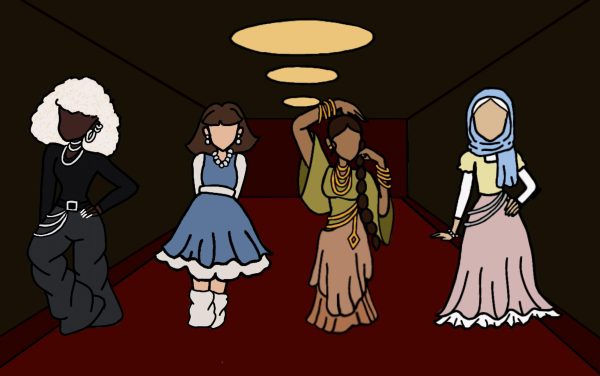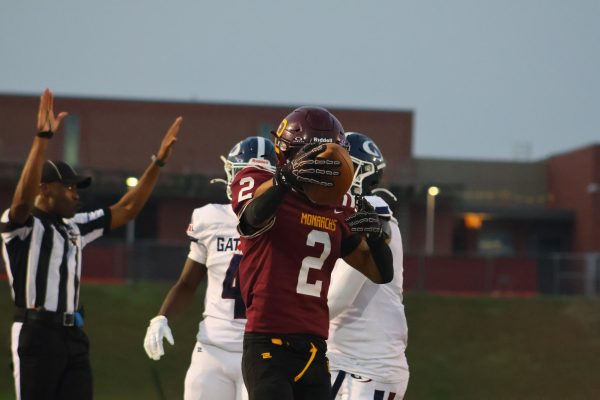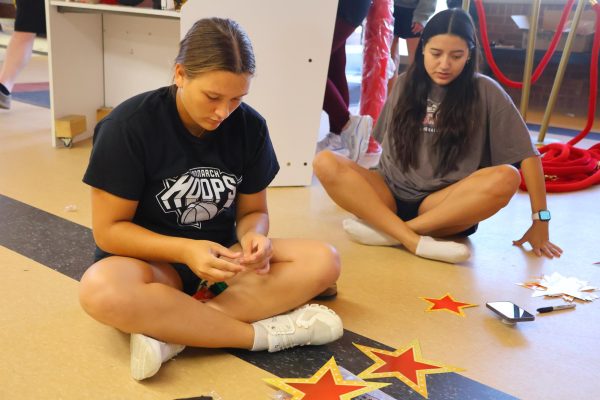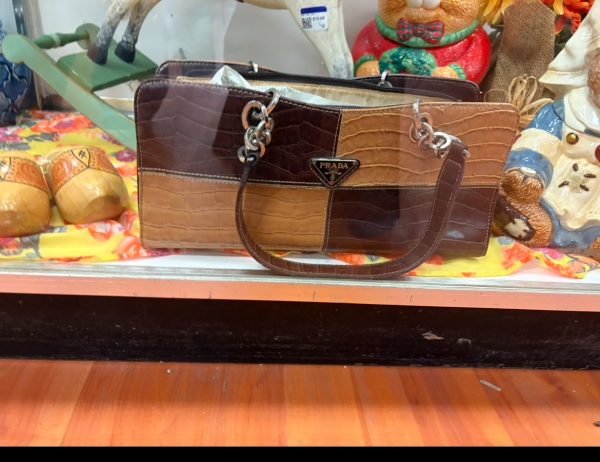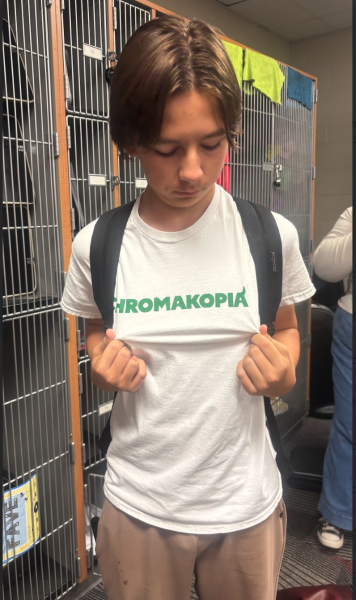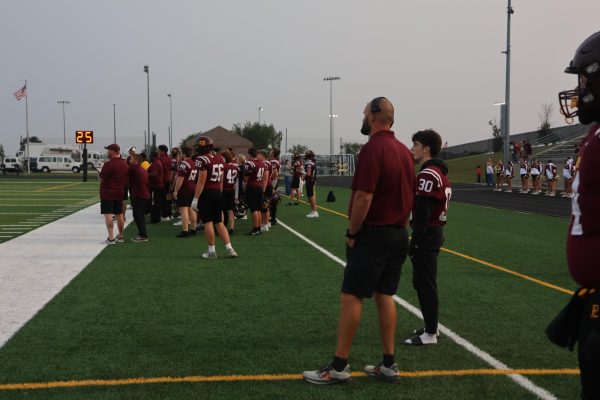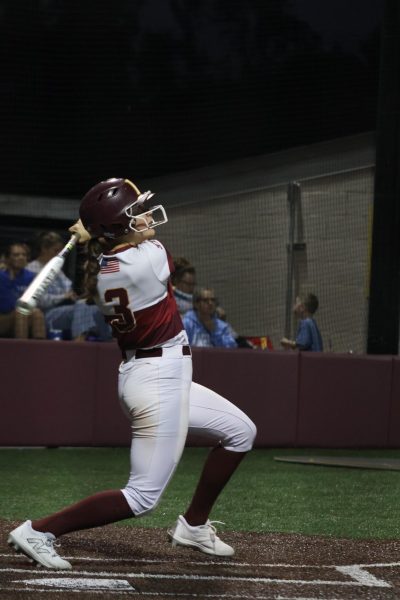A Polished View On COVID-19
As the world is affected by COVID-19, healthcare officials respond with some words of advice.
While many Americans are sitting at home in effort to slow down the pandemic that’s unfolding in front of us, healthcare workers are standing in the frontlines risking their lives for a greater good.
The year of 2020 has been an emotional roller coaster for many Americans and the rest of the world; however, one issue that has stood out much more than the others has been COVID-19. COVID-19 is one of many versions of coronaviruses but has proven to be the deadliest. With us Americans and the rest of the world held to certain restrictions, we’ve begun to ask many questions about COVID-19 that healthcare workers can answer for us.
“There’s a lot we still don’t know about the virus and I think that’s why people are scared. I think the scariest thing about it is that you can carry the virus and not have any symptoms, and because of that, it can be easily spread to other people. Initially, they said it affected people who are elderly or have underlying health issues, but that’s not totally the case. Young people have contracted it and died also. It seems to affect everyone differently. You just don’t know how it will until you get it. That’s why they instituted the “stay-at-home” orders around the country. You can’t spread the virus to others if you’re keeping your distance from them,” Mrs. Michelle Anderson said.
It has been well said that with social distancing, anyone should come only in contact with their immediate family. The only case in which anyone should encounter random people would be at the grocery store or any other place that provides essential items. However, the importance of social distancing has shown a decrease in the spread of the virus and may stay in affect for many months to come.
“Experts say to maintain a distance of at least 6 feet from other people to keep your secretions to yourself basically. When people speak, cough, or sneeze… it can create aerosols which become airborne and then, if they’re close to someone, they can inhale those aerosols, thus passing along the virus. The closer we are together, the more likely the contagiousness of the disease becomes. I think it’s been a good thing so far (social distancing), but with unemployment and the economy the way it is currently, I don’t know how long social distancing will be able to last,” Anderson said.
With social distancing being a very important precautionary step in slowing down the virus, some people may ask, what precautions do healthcare workers take, especially workers who encounter patients who are at higher risk? With how advanced our technology has become there isn’t much to worry about.
“At the facility I work at, there are screening stations at the various entrances. When we come to work, they take our temperatures daily along with asking questions about any symptoms we may be experiencing (cough, fever, shortness of breath). Of course, if you present with any of those symptoms, you’re immediately sent home. Also, at those screening stations they have surgical masks that we can take, which are only used for that shift and disposed of at the end of the day. I work in the lab and don’t have direct patient contact, but if I have to go to the floor to run blood gases, for example, I am supposed to wear one of those masks while I’m up there. I wear a disposable lab coat, which is thrown away at the end of my shift, along with gloves,” Anderson said.
“All the nursing staff, physicians and environmental services (housekeeping) people have to wear masks the whole time while they are working on the various units. We have specific units for COVID-19 patients only where the healthcare staff are required to wear full PPE (N-95 masks, gowns, gloves, face shields). Any respiratory samples that are sent to the lab for testing are put in TWO biohazard bags (used to be that one was adequate for transport) and once they get to the lab, we have to open those samples in a biohazard safety cabinet that has a HEPA filter and negative pressure in it. Once we have finished processing the sample in the hood, we must double bag the sample and change our gloves when we are done. I believe the measures we are taking to be safe are effective. I haven’t heard of any of my coworkers getting sick yet (not that they couldn’t contract it somewhere else other than work),” Anderson said.
Many people know the basic rules that they should follow in order to stay safe, but there are certain techniques and methods of doing things that will drastically improve their safety and decrease their chances of getting sick when going out.
“When going to the store, the main thing is to cover your face. Remember to keep your secretions to yourself. When people wear masks, it’s mainly to protect other people from themselves (in case they’re an asymptomatic carrier of the virus). Try to keep that six-feet distance from others. I don’t think there’s a need to wear gloves in public. They’re just like your hands, so anything you get on them, you can transfer to all of the things you touch, unless you’re changing them all of the time. Then maybe they would be beneficial to wear, but I don’t see people wanting to do that. The main thing is to wash your hands frequently and keep them off of your face. The virus has been proven to be able to survive for long periods of time on various surfaces, so when you touch something and then touch your face, you could possibly be inoculating yourself with the virus. WASH THOSE HANDS!! I can’t stress that enough,” Anderson said.
Here in Nebraska coronavirus hasn’t hit as hard as population dense cities and states such as New York, California, and Washington, but Nebraska has been a major player in calling out shots because of The University of Nebraska Medical Center (UNMC).
“I don’t work at UNMC, but I’m assuming they’re taking the same precautions as other facilities to try to combat this virus. I know the Nebraska Public Health Lab is at UNMC and they are doing a quite a bit of the COVID-19 testing. My facility is going to start doing testing this week for the state which is cool. I’m anxious to see how that is going to work out,” Anderson said.
As the news constantly talks about places reopening around the world, people wonder if it’s a good idea for the improvement of our economy or if it’s going to end up biting us in the butt again.
“I’m a little scared of how reopening is going to go. I don’t want people to think that we’re just going to be able to have everything go back to the way it was before this all happed about six weeks ago, otherwise we’ll be right back to where we started when this all went down to begin with. It’s going to be something we’ll be dealing with for a long time, or at least until a cure or vaccine comes out. I think that wearing masks in public is going to become normalized for a while. And I’m sure that social distancing will still have to be in place for some things also. I don’t know how it will work with bars, restaurants, concerts, sports arenas, etc. I guess we’ll leave that up to the state to come up with those answers. I just hope people are smart and try to maintain good hand hygiene and distancing from others as much as possible,” Anderson said
The big thing to take away from times like now is that for anyone who has missed any special events or has gone through tragic events, we’re going through this together. There’s always light to be found at the end of the tunnel.
Jack is in his second year on the Scepter staff. He enjoys watching Oklahoma athletics and hanging out with his friends and family when he can. Jack is...

